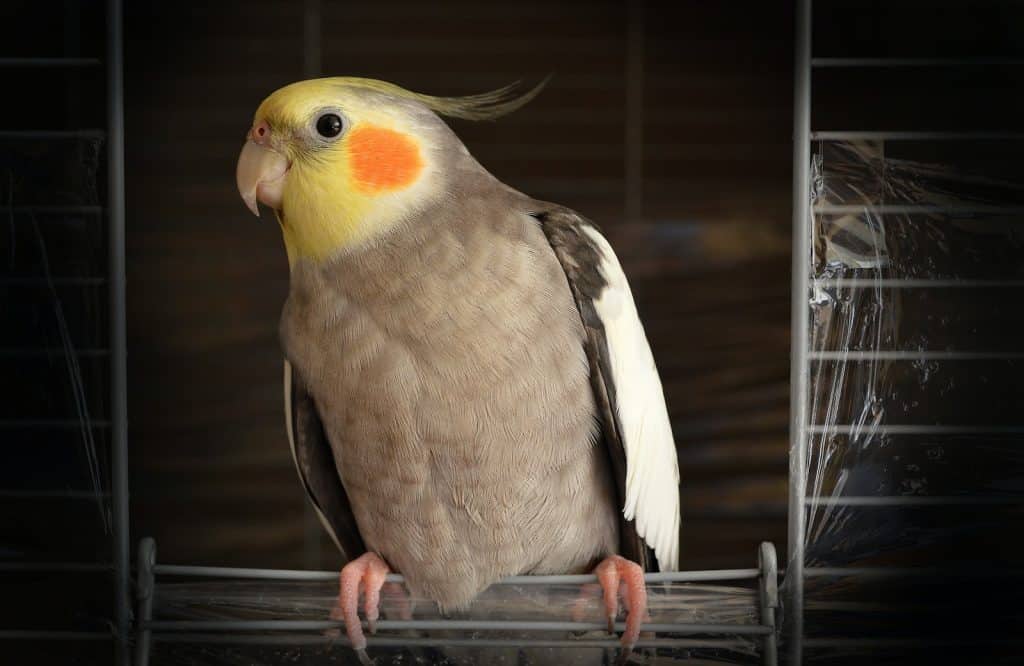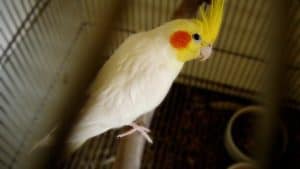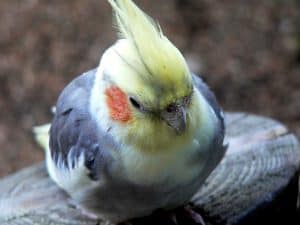Are you wondering what is healthy cockatiel feet? Have you ever been petting your cockatiel and suddenly noticed that one foot or its feet are warm? If so, then you’re probably wondering about healthy cockatiel feet. The good news is that in most cases, there’s no need to worry about your cockatiel’s health if it has warm feet. However, if the temperature change was sudden or had no apparent cause, then you should definitely consult a avian veterinarian to check if your pet bird is suffering is from nutritional deficiencies.
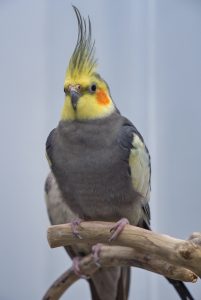
Healthy Cockatiel Feet: Why Does My Cockatiel Have Warm Feet?
Because cockatiels have higher body temperatures than humans, their feet may feel warm to us. In addition, because they can’t sweat like we do, they release excess heat through their skin. So if your cockatiel has been exercising, its feet may be warmer than usual healthy cockatiel feet for a little while afterward—but this is nothing to worry about. If you notice that your cockatiel’s feet are always warm though (not just after exercise), it could be a sign of illness and you should take them to the vet right away.
Although cockatiels with warm feet is nothing to worry about as long as they are within a normal, healthy range, you should take notice if your cockatiel seems lethargic, screams frequently or has trouble keeping balance. If your bpet bird is constantly fluffing up its feathers for hours on end, this may be an indication that the warm feet are not natural and could be a symptom of something else.
You can learn to tell the difference between a healthy cockatiel and one with a fever by touching their feet periodically. If you think that the temperature has spiked, reach out to your vet for help.
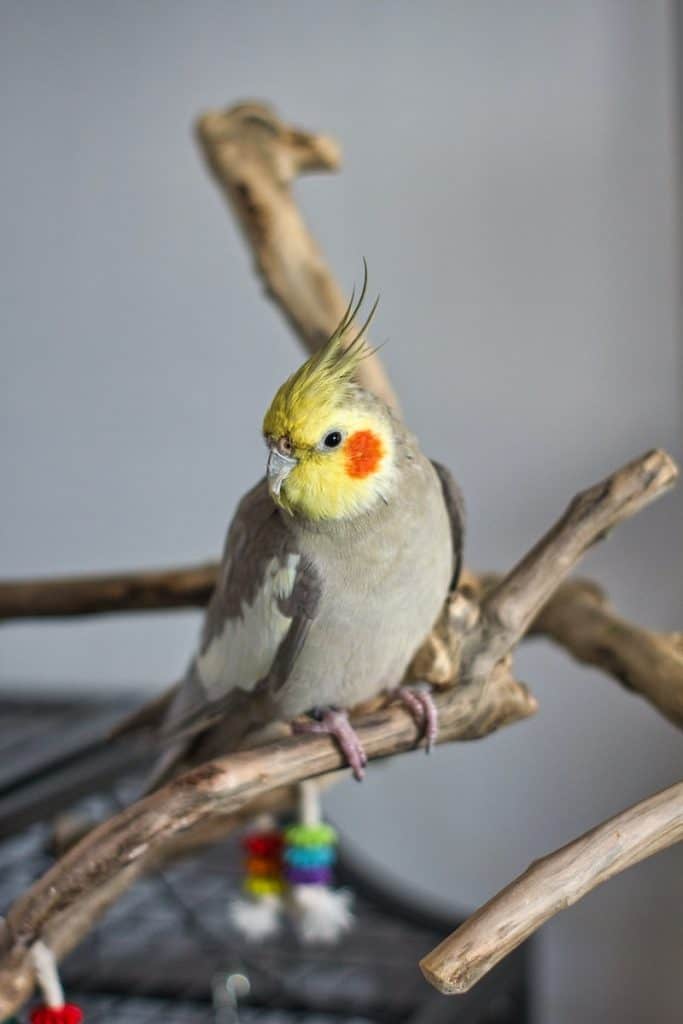
Healthy Cockatiel Feet: Reasons Why Your Cockatiel Has Warm Feet
There are several reasons why your cockatiel’s feet may be warmer than usual, but in most cases it is not a cause for alarm.
Due to high body temperature
If you touch your cockatiel’s bare skin underneath its feathers, you would notice that its skin is warm. That is because cockatiels have more body heat than humans due to their average body temperature of 107 degrees as opposed to the 97-99 degree range for adult humans.
Because of its overall surface area, a little object cools up extremely quickly. Because the metabolism of cockatiels runs faster, they are able to maintain themselves warm. Their body temperature rises as a result of this.
Body temperature regulation
A cockatiel’s feet are warmer than the rest of its body due to the Cockatiel using their feet to release any surplus heat.
A cockatiel’s feathers not only make sure the heat stays in, but also work to reduce how much energy their thermoregulation system needs. For this to happen though, there must be some way for the heat to escape – otherwise they risk overheating.
Sweating and dogs pant or drool are common among canines. Cockatiels, on the other hand, do not produce saliva, nor do they have sweat glands—rather, they cool down by rapidly vibrating their Thin floor of the mouth and upper throat.
A gular flutter is one of the many names for this condition. However, to vibrate their upper throat continuously takes a lot of effort. Cockatiels use their feet to cool off in order to limit how much energy they consume.
Furthermore, a cockatiel’s feet lack insulation. So, the feet can cool off more quickly than the rest of the body. Cockatiels capitalize on this by ramping up blood circulation in their feet when they are hot. This allows body heat to concentrate in one area, where fresh air then circulates and eliminates any excessive warmth.
Over-activity
Could your cockatiel’s warm feet be the result of inactivity? Cockatiels, being energetic birds, enjoy flying around the cage, climbing on perches, playing with toys, and shredding nearby items. These activities increase muscular activity, which results in a faster heart rate and an increased body temperature.
If your cockatiel’s feet feel warm after playing, it is nothing to worry about—this is normal. Its feet will return to an average temperature eventually. However, if the warmth persists for more than an hour, this could be indicative of a deeper issue and you should take your pet to see a doctor.
Overheating
The cockatiel will release additional heat through its legs in order to cool down, but it may not be enough if it is overheating severely. Cockatiels can overheat in rooms that are hotter than 90 degrees Fahrenheit or above. They can also suffer from heatstroke by remaining in direct sunlight for prolonged periods without water, shade, or the ability to depart.
The extreme heat will make its feet extremely warm, as the body of a cockatiel will redirect extra heat out through its legs. Its feet will become extremely hot in this scenario. However, if the heat continues to increase and the internal temperature of your cockatiel rises, your pet can still suffer organ damage.
Weight gain and obesity
The body temperature of an obese cockatiel will be higher. Because the extra fat surrounds the internal organs in cockatiels, this is the case. As a result, its body has to work harder to operate properly as a result of all of the extra weight.
When a cockatiel breathes in chilly air, its fat prevents it from cooling its internal temperature as effectively. The heat is mostly expelled through the bird’s feet. As a result, the warmth of a fat cockatiel’s feet does not imply that the animal is in immediate danger. However, to avoid future difficulties, it is still important to reduce the cockatiel’s weight.
Stressful situations
Warm feet may also be a sign that your cockatiel is stressed. When cockatiels are frightened, their heart rate and body temperature risks rising. So, in addition to warm feet, a scared cockatiel will also often times puff up its wings to try and look intimidating as seen from predators – this hopefully scares off the threat and keeps them safe. If sadly that doesn’t work however, the cockatiel might scream with terror , go completely silent out of fear, or hide away somewhere.
Illness
usually, cockatiels will raise their body temperature when they have an infection. Their immune system (like most animals) is trying to get rid of the virus, bacterial infection or parasite that has intruded. The cockatiel’s metabolism speeds up and it may develop a fever and show other signs of illness as its body tries to get rid if the foot problems– which can be very effective in the short term and even save your pet’s life against serious infections. However, if this process continues for too long, the fever could end up harming your cockatiel just as much as the infection would.
However, if your cockatiel has a fever as a result of an illness, its entire body temperature will rise, not just around its feet. Warm feet can be caused by a variety of disorders, including kidney infections. A blockage in the digestive system or metabolic problems
- TEXTURE: An excellent beak trim toy, the textures of the wooden disks and leather strands encourage chewing and shredding to keep your bird busy and anxiety free with these toys parrot toys
- HOURS OF FUN: The Spinning Falls bird toys for parrots provide hours of fun; Your bird can climb, spin, and chew on this toy for near-endless entertainment
- SAFE FOR BIRDS: The wood pieces are dyed using natural food dyes, so your feathered friend can play it safe while having fun!
- VIBRANT: VIBRANT: This toy is comprised of brightly-colored wooden shapes hanging on multiple leather strings that will keep your feathered friend engaged for hours
- EASY INSTALLATION: The Spinning Falls toy attaches easily to any cage, ensuring your bird can start playing as quickly as possible
Healthy Cockatiel Feet: How To Tell If A Cockatiel Feet Is Warm
A healthy cockatiel’s body temperature should be around 104-106 degrees Fahrenheit. To a human, this will always feel warm. Unfortunately, that makes it difficult to discern when your healthy cockatiel feet are normally warm or too hot.
There are several methods to check a cockatiel’s temperature, but most pet owners will not do so on a regular basis. Unfortunately, this makes it easy to overlook a fever as a warning signal regarding your cockatiel’s health. Of course, if you are concerned about your bird’s health, you may take him to the veterinarian; however, if it appears only slightly too warm, taking him there may be a waste of time.
The best way to know if your cockatiel’s feet are too hot is by ensuring you familiarize yourself with what its healthy feet feel like. This can be done by letting it perch on your finger or touching its legs occasionally while socializing with it. Cockatiels usually have warm feet, but if you notice it seems much warmer than usual from this baseline, then there may be a problem.
Wait until your cockatiel is calm and unworried for the optimum impact. Its temperature would be naturally higher than normal if it has just finished fluttering, playing, or dancing. If your cockatiel is continuously too hot for hours or exhibits unusual symptoms, contact your veterinarian immediately.
Healthy Cockatiel Feet: Bottom Line
Cockatiels and other bird species usually have warm healthy cockatiel feet, but if you notice it seems much warmer than usual from this baseline, then there may be a problem.
Warm feet can be caused by a variety of disorders, including kidney infections. A blockage in the digestive system or metabolic problems. If your cockatiel is continuously too hot for hours or exhibits unusual symptoms, contact your veterinarian immediately.
Cockatiels are prone to a number of health problems, many of which can be helped with proper diet and nutrition. One such problem is obesity, which can lead to all sorts of other issues like fatty liver disease, heart conditions, and diabetes. Obesity in cockatiels often leads to deformities of the feet, including bumblefoot.
Bumblefoot is an infection of the foot that can be caused by a number of different things, but is most often seen in obese birds. The condition gets its name from the fact that the affected foot will often swell up and look like a bumblebee. In severe cases, the infection can spread to the bones and joints, causing permanent damage.
There are a number of different treatment options for bumblefoot, but the most important thing you can do is to try to prevent it from happening in the first place. The best way to keep healthy cockatiel feet is to keep your cockatiel at a healthy weight.
